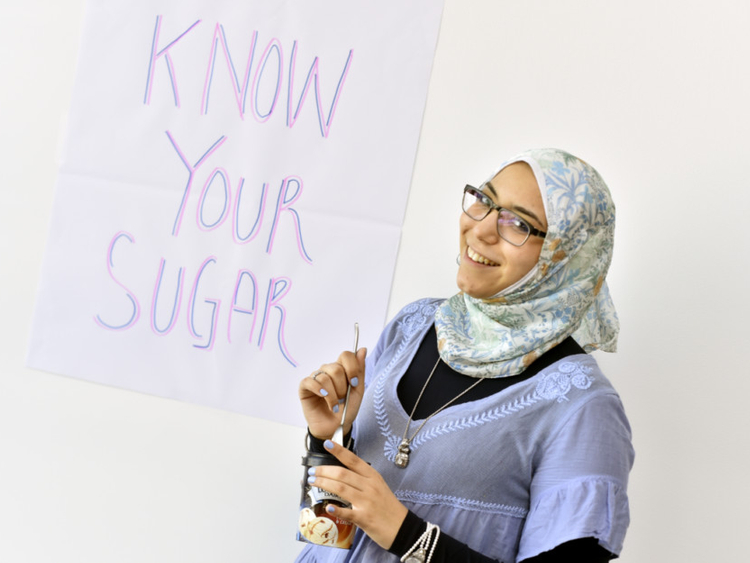
Dubai Mena Helmy, 22, is an ice-cream buff. The 22-year-old Egyptian expat who works for a PR firm in Dubai says it is her “biggest weakness”. “Praline and cream is my favourite and I have it every other day.”
Mohammad Kader, a webmaster, also loves sweets. “I go in for chocolates, cookies and ice-cream and I treat myself to something special, say a cheesecake, every week,” says the 22-year-old from New Zealand.
While having a sweet tooth may not be such a big deal, Helmy and Kader’s indulgence often raises eyebrows because they happen to be diabetics.
As the UAE marks World Diabetes Day on November 14, Kader, who is a Type 1 diabetic, lets on, “I bite into a chocolate bar and I have people asking me if it’s okay. I don’t get offended but feel the need to educate them. The fact is you can eat sweets if you are a diabetic provided it is in a small quantity and you manage it with the right amount of exercise and insulin.”
Helmy, who was diagnosed with Type 1 diabetes at the age of five, agrees. “It’s a huge misconception that you cannot eat sweets if you are diabetic. I burn as many calories as I eat and take enough insulin to cover my intake. It just goes hand in hand.”
It’s the same with most Type 2 diabetics as well. Minhaj Zafer, 55, says he is not unduly worried about his sweet consumption because his blood sugar level is well controlled. “Some diabetics I know get depressed because they don’t get to eat any sweets but it all boils to down how well you can balance the carbohydrates.”
Able management
Those like Helmy, Kader and Zafer are among those identified as ‘Beat Diabetes’ champions for their able management of diabetes by Landmark Group (see briefs).
Nathalie Haddad, founder and managing director, The Right Bite Nutrition and Catering Services, says, “One of the most popular misconceptions about diabetes is that eating too much sugar causes diabetes. While it is true that eating too many sweets can affect your blood sugar levels, it does not necessarily mean that you will develop diabetes because of the same. The risk of getting Type 2 diabetes is highest if a person is overweight or obese. It is important that one must maintain his or her ideal weight – you can achieve this by leading a healthy lifestyle, sticking to a balanced diet and engaging in regular physical activity. But when you are already suffering from diabetes, it is crucial you monitor your carbohydrate and sugar intake as this could impact blood sugar levels.”
Haddad says people with diabetes can still enjoy partaking of sweets or chocolates from time to time. “The key is to eat them in small portions and save them for special occasions, just to satisfy the craving and stick to a healthy meal plan combined with exercise.”
So while sweets aren’t necessary to include in a meal plan because they lack nutrition, there is no reason why an occassional treat should be avoided. Krishna, 83, a Type 2 diabetic, says “Patients can swap high carb foods for something lighter. I take low-fat ice creams, puddings, yoghurt and the like sometimes.”
Expert tips ahead of World Diabetes Day
Avoid simple sugar such as table sugar, honey, candies, sodas, cookies and cakes
Make sure to include fruits daily especially the ones with the edible skin and stay away from fresh juices
Consume more green leafy vegetables as they help reduce the absorption of glucose in the blood
Reduce your sugar intake by practicing smart swaps: replace sugar-coated cereals with unsweetened and plain whole-grain cereals such as oatmeal
Avoid adding sugar to your beverages. Flavour them with fresh lemon wedges, peppermint, ginger or cinnamon sticks
Substitute flavored puddings or sweets with fresh fruits, plain yogurt, or yogurt with fresh fruits
Stay away from artificial sweeteners and zero sugar beverages and sweets
Source: The Right Bite















